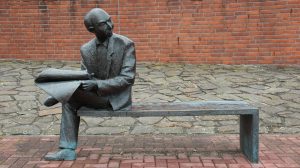 Un rapporto sulla storia e le prospettive dell’intelligenza artificiale è stato realizzato da Stanford e pubblicato liberamente in rete. Ricostruisce l’evoluzione complicata e non certo lineare dell’intelligenza artificiale. Mostra i recenti successi per i quali internet ha fatto la differenza. E dichiara le prospettive. Oltre che suggerire raccomandazioni di policy (AI100).
Un rapporto sulla storia e le prospettive dell’intelligenza artificiale è stato realizzato da Stanford e pubblicato liberamente in rete. Ricostruisce l’evoluzione complicata e non certo lineare dell’intelligenza artificiale. Mostra i recenti successi per i quali internet ha fatto la differenza. E dichiara le prospettive. Oltre che suggerire raccomandazioni di policy (AI100).
La policy in particolare non è facile da definire. La libertà di sviluppo della tecnologia è essenziale. Ma le conseguenze impreviste possono anche preoccupare. E nel caso dell’intelligenza artificiale non mancano gli autorevoli critici, anche in relazione alla possibilità che le macchine sostituiscano gli umani in molte funzioni professionali.
The goal of AI applications must be to create value for society. Our policy recommendations flow from this goal, and, while this report is focused on a typical North American city in 2030, the recommendations are broadly applicable to other places over time. Strategies that enhance our ability to interpret AI systems and participate in their use may help build trust and prevent drastic failures. Care must be taken to augment and enhance human capabilities and interaction, and to avoid discrimination against segments of society. Research to encourage this direction and inform public policy debates should be emphasized. Given the current sector-specific regulation of US industries, new or retooled laws and policies will be needed to address the widespread impacts AI is likely to bring. Rather than “more” or “stricter” regulation, policies should be designed to encourage helpful innovation, generate and transfer expertise, and foster broad corporate and civic responsibility for addressing critical societal issues raised by these technologies. In the long term, AI will enable new wealth creation that will require social debate on how the economic fruits of AI technologies should be shared.
L’Ocse ha sviluppato a sua volta una visione critica, ancorché non catastrofista, soprattutto per quanto riguarda i temi della sostituzione dei posti di lavoro con macchine (Oecd).
Da leggere:
How algorithms rule our working lives
Personal data for decisional purposes in the age of analytics: From an individual to a collective dimension of data protection
Understanding the Economics of Networks
Big Data Security
Data and its invisible work
La politicità degli algoritmi






Commenta